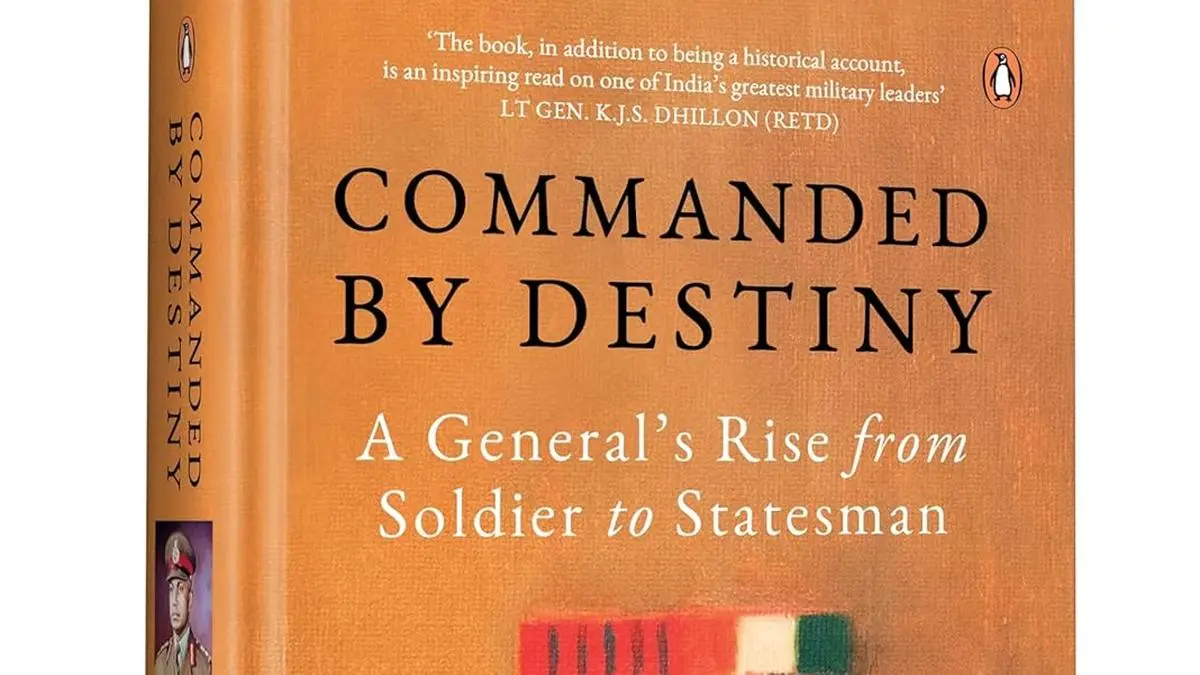Science
General SM Shrinagesh’s Memoir Highlights Military Legacy

The posthumous memoir of General SM Shrinagesh, a former Chief of Army Staff of the Indian Army from 1955 to 1967, delves into his life journey and reflects on the profound changes faced by the military during and after India’s struggle for independence. Titled *Commanded by Destiny – A General’s Rise from Soldier to Statesman*, the book provides an intimate look at a man dedicated to the preservation of peace amid a tumultuous historical backdrop.
In his writing, General Shrinagesh articulates a poignant perspective on the fragility of human life, stating, “Human life is so fragile that, as between ordinary bombs and atomic bombs, the individual has little to choose.” This assertion resonates strongly today, as the world continues to grapple with conflicts that threaten global stability. His memoir, preserved by his family, serves as a testament to his commitment to peace over warfare.
Born to Dr S Mallannah, a prominent bacteriologist and consultant to the Nizam of Hyderabad, Shrinagesh exhibited excellence in both academics and athletics at Cambridge before joining the Indian Army in August 1923. He received military training at the Royal Military College, Sandhurst, where he began to confront the colonial biases embedded within the British military system. He noted that during British rule, the Indian Army functioned primarily as a mercenary force, rather than a national institution dedicated to securing India’s borders.
General Shrinagesh’s memoir highlights the systemic inequalities faced by Indian-origin officers, who were often limited to eight out of fifty regiments and received inferior pay compared to their British counterparts. This inequity fueled his belief that India required a military that reflected its own traditions and values. He celebrated the moment when Indian officers assumed control of the Army shortly after independence, marking a significant shift in military governance.
The memoir provides a detailed account of the Kashmir operations from 1947 to 1948, illustrating how political miscalculations shaped the course of history. He poignantly describes the emotional toll of the partition of India, acknowledging the profound loss experienced by millions and the challenges posed by the swift division of the military. During this tumultuous period, approximately 75% of the army was allocated to India, yet many soldiers faced housing crises due to the division of cantonments.
Military Reforms and Leadership
Following independence, General Shrinagesh played a crucial role in military reforms, notably transferring supreme command of the armed forces to the President of India and establishing autonomy for each military service under its own Chief of Staff. He recalls the pride felt on January 15, 1949, when General Cariappa became the first Indian Commander-in-Chief.
His experience during World War II is also notable. Shrinagesh recounts how Indian soldiers made significant contributions to the Allied cause despite initial reluctance from the British government to engage Indian leaders. After the war, while serving in the Indian Military Mission in Germany, he admired the resilience of the German people and contrasted it with what he perceived as a lack of similar qualities in Indian society.
When appointed Chief of Army Staff in 1955, General Shrinagesh faced the challenge of government orders to downsize the army from approximately 450,000 personnel to 150,000. Recognizing the potential threat this posed to national security, he advocated for a compromise, successfully arguing for a force level of 300,000 troops.
His deep sense of duty extended beyond military strategy; he genuinely cared for the well-being of soldiers and their families. He emphasized the importance of recognizing loyalty and sacrifice, believing that a soldier’s obedience is earned through respect and care, not fear.
Post-Military Career and Legacy
After retiring from military service, General Shrinagesh took on significant roles, including Principal of the Administrative Staff College and Governor of Assam in October 1959. He later served as Governor of Andhra Pradesh and then Mysore State, showcasing his administrative capabilities and steadfast dedication to public service.
In his memoir, he reflects on the senselessness of war, stating, “No one hates war more deeply than the soldier, who specialises in the arts and instruments of war.” His life story encapsulates the evolution of the Indian military from its colonial roots to a post-independence institution adapting to new realities.
General Shrinagesh’s memoir is not only a personal narrative but also a crucial historical document for understanding the transformation of the Indian military and its implications for national identity. It is a compelling read for military historians and those interested in the evolution of India’s defense forces.
-

 World5 months ago
World5 months agoSBI Announces QIP Floor Price at ₹811.05 Per Share
-

 Lifestyle5 months ago
Lifestyle5 months agoCept Unveils ₹3.1 Crore Urban Mobility Plan for Sustainable Growth
-

 Science4 months ago
Science4 months agoNew Blood Group Discovered in South Indian Woman at Rotary Centre
-

 World5 months ago
World5 months agoTorrential Rains Cause Flash Flooding in New York and New Jersey
-

 Top Stories5 months ago
Top Stories5 months agoKonkani Cultural Organisation to Host Pearl Jubilee in Abu Dhabi
-

 Sports4 months ago
Sports4 months agoBroad Advocates for Bowling Change Ahead of Final Test Against India
-

 Science5 months ago
Science5 months agoNothing Headphone 1 Review: A Bold Contender in Audio Design
-

 Top Stories5 months ago
Top Stories5 months agoAir India Crash Investigation Highlights Boeing Fuel Switch Concerns
-

 Business5 months ago
Business5 months agoIndian Stock Market Rebounds: Sensex and Nifty Rise After Four-Day Decline
-

 Sports4 months ago
Sports4 months agoCristian Totti Retires at 19: Pressure of Fame Takes Toll
-

 Politics5 months ago
Politics5 months agoAbandoned Doberman Finds New Home After Journey to Prague
-

 Top Stories5 months ago
Top Stories5 months agoPatna Bank Manager Abhishek Varun Found Dead in Well









